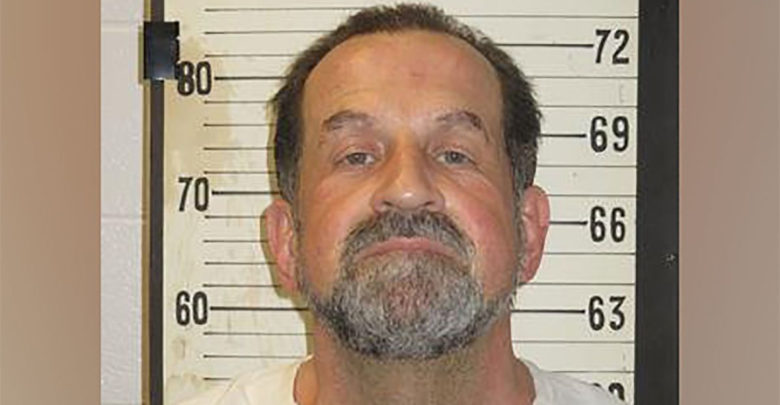News
US murderer is executed by electric chair for killing a rapist inmate

A convicted murderer was put to death in Tennessee’s electric chair Thursday, becoming the fifth prisoner over 16 months to choose electrocution over the state’s preferred method of lethal injection.
Sutton was served his last meal about three hours before his execution on Thursday evening. He ordered fried pork chops, mashed potatoes with gravy and peach pie with vanilla ice cream, the Tennessee Department of Correction said. Death row inmates typically have a $20 limit for their last meal.
Nicholas Sutton, 58, was pronounced dead at 7:26 p.m. at the Riverbend Maximum Security Institution in Nashville, the Tennessee Department of Correction said.

Sutton who got married to his wife Reba in 1994 while in prison, gave a statement after he was strapped into the chair, thanking his wife, family, and friends for supporting him and saying Jesus Christ “fixed me.”
“I’m just grateful to be a servant of God, and I’m looking forward to being in his presence,” Sutton said as witnesses looked on.

”I have had the privilege of being married to the finest woman, who is a great servant to God,’ he continued.
‘Without her, I would not have made the progress that I have made. I hope I do a much better job in the next life than I did in this one.
Sutton was sentenced to death in 1986 for killing fellow inmate Carl Estep in a conflict over a drug deal while both were incarcerated in an East Tennessee prison, where he had been serving time for his grandmother Dorothy Sutton, his high school friends John Large and Charles Almon – in 1979, when he was 18 years old.
As prison guards were on a shift change on January 15, Sutton and Thomas Street entered Estep’s cell and stabbed him 38 times in the chest and neck with two homemade knives, prosecutors said.
One of the inmates also said Estep was a marijuana dealer at the facility who had sold the men ‘bad merchandise’ and refused to refund their money. He testified that after the men took Estep´s watch, Estep threatened to kill Sutton.
In 1986, a Morgan County Criminal Court jury convicted Sutton of first-degree murder and sentenced him to death. Street was convicted and sentenced to life in prison. A third man who was accused of taking part in the attack was acquitted.
Estep’s oldest daughter has said Sutton did her family a favor when he killed her father, who she describes as an ‘evil man’.
Rosemary Hall said that her father, who was jailed for raping her stepsister when he died, set their house on fire and deliberately caused a traffic accident that killed her baby sister.
She described his death as a blessing. ‘To say that was the best day of my life is an understatement,’ she said in a statement that was included in Sutton´s clemency petition.
‘I felt as though a 100-pound weight had been lifted off my shoulders and I thought to myself, ‘There is a God!”

Sutton’s supporters, including several family members of his victims and prison workers, had asked Governor Bill Lee to commute his sentence, saying Sutton had rehabilitated himself in prison and was not the same man who first entered prison 40 years ago. But Lee declined their plea and said he would not intervene in the execution.
Anti-death penalty activist Dan Mann said he and another activist had intercepted the governor on the way to work Tuesday and prayed with him. “He asked us to pray for him because it was such a difficult decision,” Mann said.
Appeals to the U.S. Supreme Court were also denied on Thursday evening. The justices, in an emailed statement, gave no explanation for their decision not to step in, according to The Associated Press.




